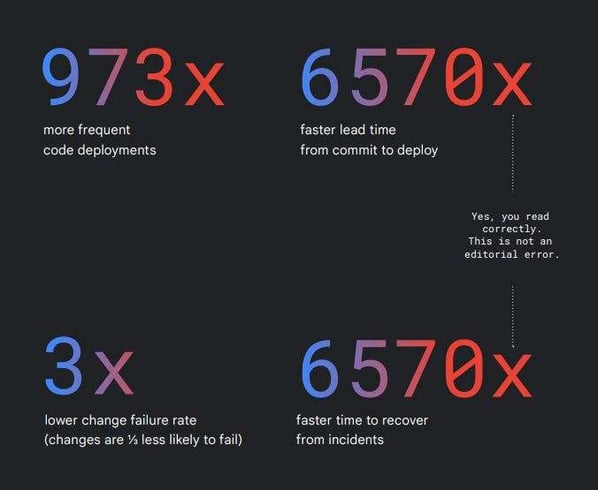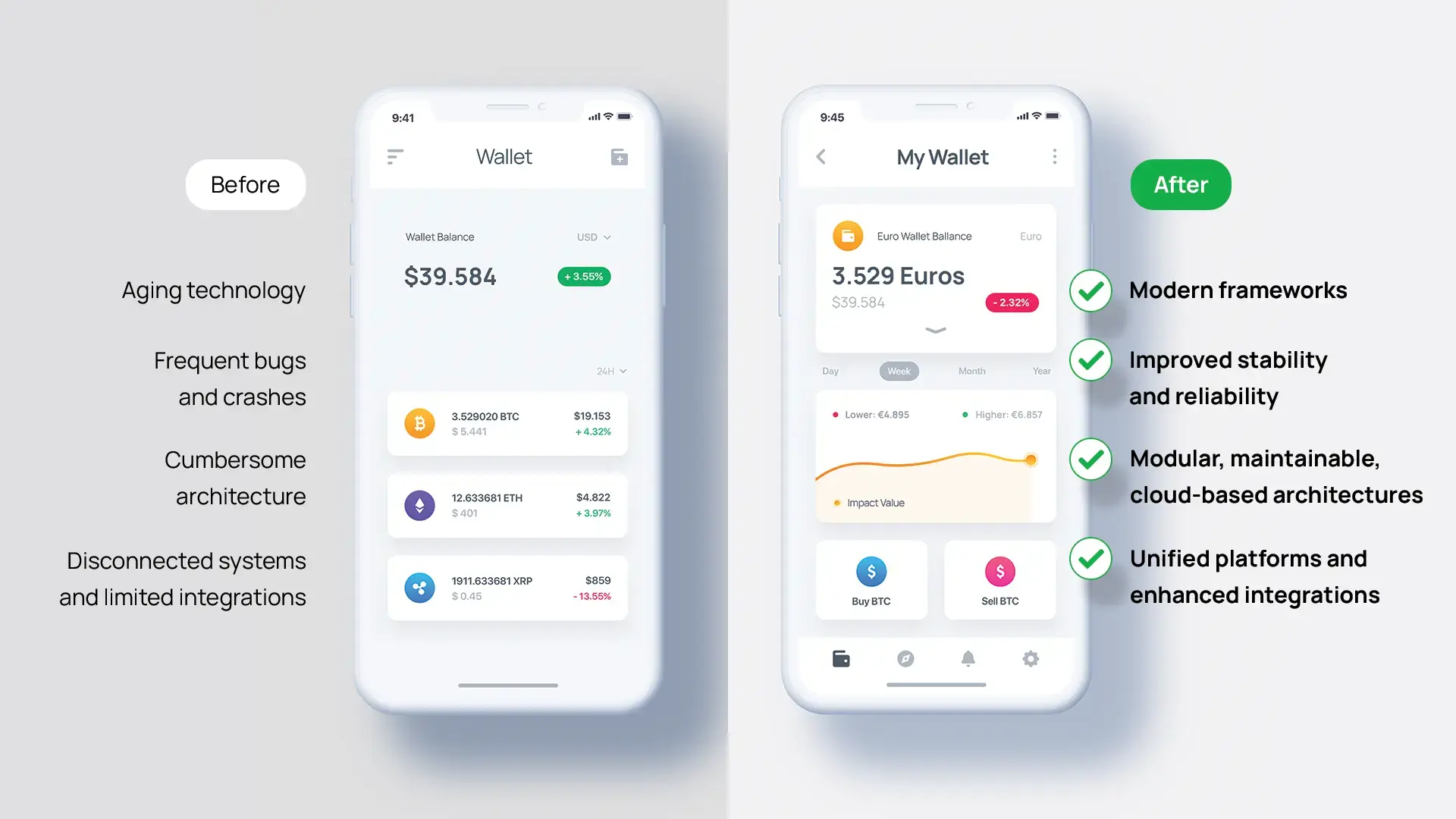In a fast-paced world, where innovation and digital transformation are on the business agenda of many organizations, staying competitive is challenging. To maintain their advantage in front of competitors, modern businesses need to accelerate their ability to deliver stable and successful software applications.
However, there are challenges in this process, especially when it comes to monolithic applications. This type of product architecture has important limitations, such as a large code base, complex pairing between components, less reusability and scalability, and more deployment and restart times needed to perform any software update. These restraints deeply burden the entire software development lifecycle, team collaboration and resources sharing, and usage. Moreover, any delay in a project launch negatively impacts a product or service, which often results in losing a potential competitive advantage.
A DevOps approach can significantly help in making the switch from monolithic applications to microservices architectures. It is a results-oriented mindset that comes as a bridge between development and operations departments, with a focus on cost optimization, operating the infrastructure and development processes at scale, and managing complex or changing systems. Releases and deployments can be made very easily, with developers only having to worry about writing the code.
Why DevOps
The way companies ensure a reliable development environment will influence their time-to-market strategies and the quality of their software products. According to the State of DevOps Report 2021, organizations that employ mature DevOps practices perform 973x more frequent code deployments, meaning more software updates in just one year. When it comes to the error rate generated by a software update, companies with mature DevOps practices in place enjoy a 3x lower change failure rate. Moreover, the recovery time to functional software after an application update downtime is 6570x faster while live software updates take up to 6570x less time.

DevOps benefits for your organization
1. Streamlined delivery
Today, delivering quality software continuously and reducing go-to-market timelines are on top of every development team’s list. However, streamlining the release cycles of any type of application can be daunting, especially when managing risks at the same time.
With DevOps practices in place, the development and operations teams can develop and integrate code instantly with the help of automated CI and CD pipelines. This facilitates continuous release and deployment with better quality and efficiency. On the other hand, as DevOps promotes observability, it is easier to detect code defects, while recovery is much faster. This allows teams to actively and efficiently debug their system much faster.
2. Increased reliability and scalability
DevOps practices help in expanding businesses by operating the infrastructure and development processes at scale and managing complex or changing systems more efficiently. An increase in the scalability and reliability of any infrastructure is usually achieved by using the following tools and technologies:
- Containers (Docker, Kubernetes), which package up code and dependencies so the application runs quickly and reliably. With Docker and Kubernetes, teams can effectively manage containerized applications running on multiple environments;
- Cloud platforms (Azure, Google Cloud, or AWS) allow companies to provision scalable, flexible, and reliable applications in highly distributed environments;
- Source control tools (Gitlab, Jenkins) allow developers and ops to enjoy a seamless collaboration and application delivery process.
3. Advanced security
Given the widespread impact of the recent cyberattacks and remote work, organizations across industries must shift from a defensive to a proactive security mindset. A DevOps approach is beneficial in this respect as it focuses on using automation in building, testing, and deploying software. Moreover, it improves consistency by refining processes and reducing human error. With DevOps, security becomes a routine part of the delivery process, being integrated into the development process in its entirety.
4. Cost optimization
DevOps practices have a great impact on cost optimization that comes especially from resource usage optimization, a more efficient workflow, and automation. By automating release pipelines, provisioning servers, and other infrastructure components, DevOps relieves engineers from the need to manually manage everything each time they build, test, or deploy software.
Cost optimization can also come from leveraging the cloud benefits in terms of flexibility and performance, and using elastic managed services. In these cases, companies pay only for the resources they actually use during a specific period of time. In addition, applying the container-based development approach eases application hosting and fosters team collaboration. Using containers helps reduce operations costs as they require smaller amounts of resources and provide faster execution. At the same time, containerization allows performing updates without disrupting other application components.
Why choose Zitec as your DevOps business partner
With over 19 years of experience in custom software solutions, eCommerce products, cloud computing, advanced security solutions, and digital marketing services, Zitec has a team of over 200 technology experts and 100+ certified specialists who leverage global partnerships with Microsoft, Google, VTEX or Adobe to build custom business solutions for a wide range of companies.
As a leading end-to-end business solutions provider, our DevOps team will help you efficiently bridge the gap between development and operations and streamline your delivery process. Our mission is to ensure the best DevOps approach and security practices for your software applications.







